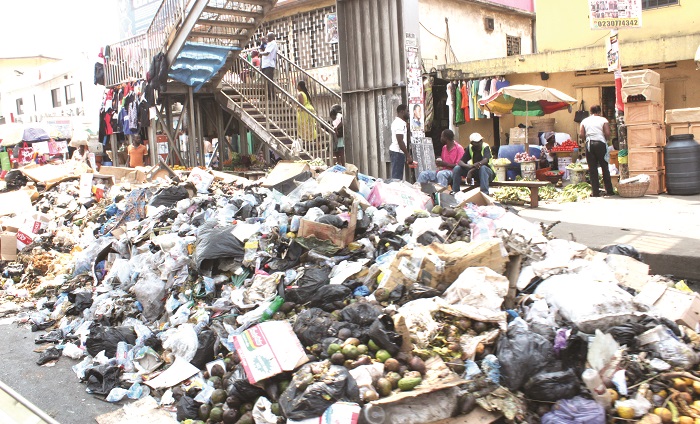
We can fight the sanitation canker
Sanitation is essential to human progress. Not only does it symbolise growth and advancement, it empowers people and communities to grow and advance.
According to the World Health Organisation, every $1 invested in sanitation yields, on average, $5.50 in economic returns. This is because the lack of sanitation often results in cycles of contamination and infection that impose a heavy cost on human, economic and environmental health.
Adults fall sick and can’t work and provide for their families. Children must weather brutal bouts of diarrhoea and pneumonia just to reach the age of five.
Communities with poor sanitation end up impoverished in numerous other ways. It is hard to imagine the nature of this situation without seeing it.
At the heart of Ghana’s capital, on the shores of the Atlantic Ocean, sits Lavender Hill, a once used dumping site for raw sewage better known for its stench of human waste than fragrant flowers.
The government, in 2010, approved a revised environmental sanitation policy that was meant to put an end to the tradition of emptying untreated sewage into the ocean, now more than a century old.
But the practice continued as the government provided no alternative methods of disposal.
It is the view of the Daily Graphic that as the country gears up to pursue the Sustainable Development Goals (SDGs) and reduce planet-warming emissions, waste management can reduce methane emissions, black carbon and other hazardous gases from landfills.
Apart from the liquid waste that the government is struggling to contain, there is also the problem of solid waste, which has become a challenge for successive governments.
President Akufo-Addo, in April 2017, promised to make Accra the cleanest city in Africa by the end of his first term in 2020.
The ambitious plan comes in the face of worsening sanitation crisis in the nation’s capital, Accra, with city authorities struggling to deal with the situation.
Sections of major roads in the capital have been taken over by filth, usually dumped there by residents in surrounding areas.
The problem reveals an apparent inability of the relevant state agencies to effectively manage waste generated in the capital, especially those generated domestically.
To address the sanitation challenge in the country, the Daily Graphic believes that the initiatives require the concerted effort of the citizenry, waste collecting agencies and state authorities.
Another worrying issue we must also consider is the non-biodegradable plastics that are marring the beauty of our cities on a daily basis.
To deal with the sanitation canker, we think that the government should be aggressive and ruthless in its quest to achieve its target by 2020.
Personnel of the Sanitation Brigade also need to be despatched to the beaches not only during the day but at night to arrest residents in the coastal areas who defecate in the open. The brigade must also not be generous to people who dump their solid waste in the sea.
In Rwanda, people who fall foul of the law are arrested and charged. The system is effective and regulated such that those who default in the payment of fines are detained.
We don’t need any glamorous plan to address the indiscipline of some Ghanaians. All that matters is a plan well executed by people who are committed to the public cause.
